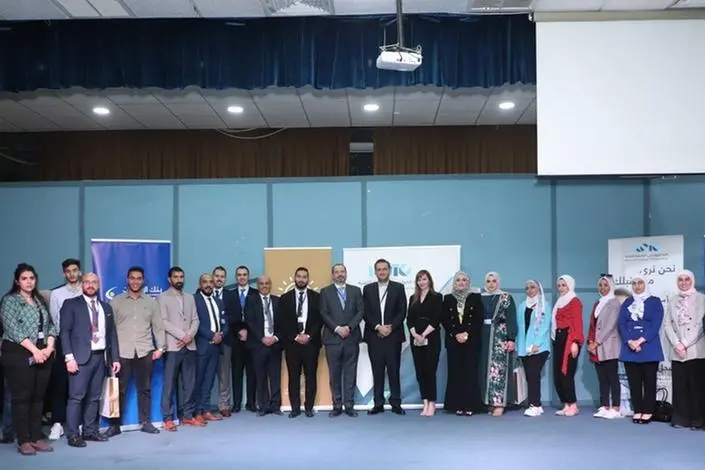PHOTO
To commemorate the Arab Day for Financial Inclusion, Housing Bank took part in the financial literacy and education initiative started by the Central Bank of Jordan (CBJ). This event is celebrated annually on April 27, during which awareness sessions targeting university students in various governorates of the Kingdom are organized as part of central Bank efforts to promote community financial culture.
Within the framework of this initiative, the Housing Bank participated in all the awareness sessions implemented at Al-Khwarizmi College in Amman, Jadara University in Irbid, Mutah University in Kerak, and Aqaba University of Technology in Aqaba. The sessions covered a variety of topics, such as financial inclusion, the importance of savings, expense management, the most important principles of sound financial planning, and the characteristics of the new currency issuance. Additionally, it introduced techniques for detecting fraud and forgery through various channels, including electronic ones, as well as covering the subjects of money laundering and terrorist financing, and the insurance sector, in addition to the CBJ’s supervisory role over banks and non-bank financial institutions.
Housing Bank’s participation was due to its eagerness to support the efforts of the Central Bank of Jordan, as well as understand the connection between the proper use of financial and banking tools and services and increasing access to them, and the level of financial and banking awareness. It is crucial to financially educate members of society, especially in light of the digital transformation in the banking and financial sector, with a focus on young people, who are considered the most likely age group to use electronic channels.
It is noteworthy that Housing Bank presented many prizes in the form of savings accounts worth JOD 200 to students who showed outstanding performance in CBJ’s evaluation at the end of the sessions to determine the extent to which the students had benefited from them. The incentive programs encouraged students to apply the monetary knowledge they had gained, leading to a more prosperous future for them.
-Ends-



















